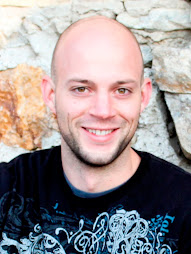Towards the end of our journey at BYU, my wife and I had one child
and another on the way. As college
students with a small family, we were broke, struggling to make ends meet. The end of November came and December found
us with less than $100 dollars in our checking account and rent due in less
than a week. Not knowing what to do, we paid
our tithing on what little money I earned from my part-time employment at Lowe’s,
and prayed for a miracle. In the mail that
week came a letter from Provo Housing Authority stating that the city would subsidize
our rent. A logical explanation is that
15 months prior to this letter we filled out an application with Provo Housing
Authority, and now, with a vacancy in the program, we would be a beneficiary;
we forgot about the application—it was almost a year-and-a-half since we
reluctantly filled it out hoping we’d never need it—and that the government subsidy
simply coincided with our running completely out of money.
But I cannot believe that these two events are mere coincidence. If, perhaps, I view these events in
isolation, coincidence might be a logical explanation. But can one really understand the nature of
the world by observing decontextualized events? When I look at my life holistically,
chance is not an acceptable answer.
If not coincidence, than what? The answer is remarkable simple: God.
The Lord declared to his disciples, “Consider the fowls of
the air; your Heavenly Father Feedeth them.
Are ye not much better than they?”1 I am a son of a living
Heavenly Father who knows and loves me personally. And because he knows and loves me personally,
he is invested in even the nuances of my life.
1 Matthew 6:26; Luke 12:24























